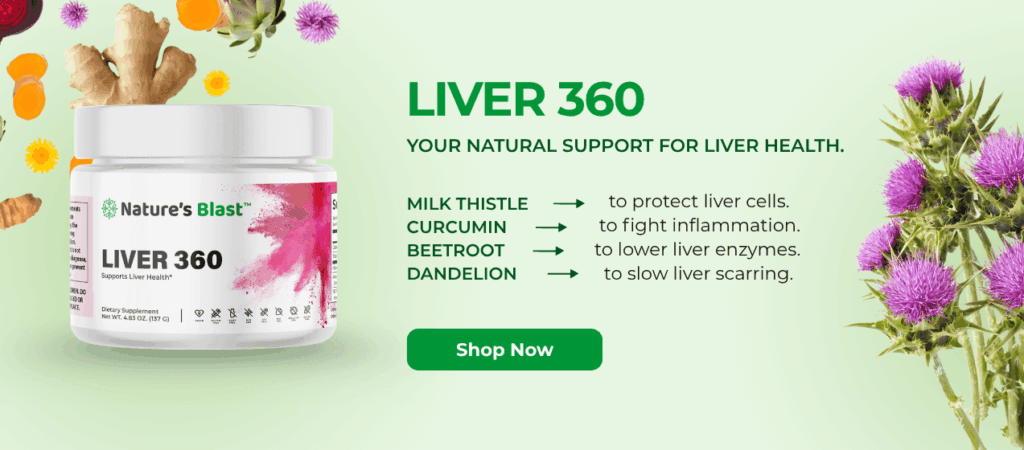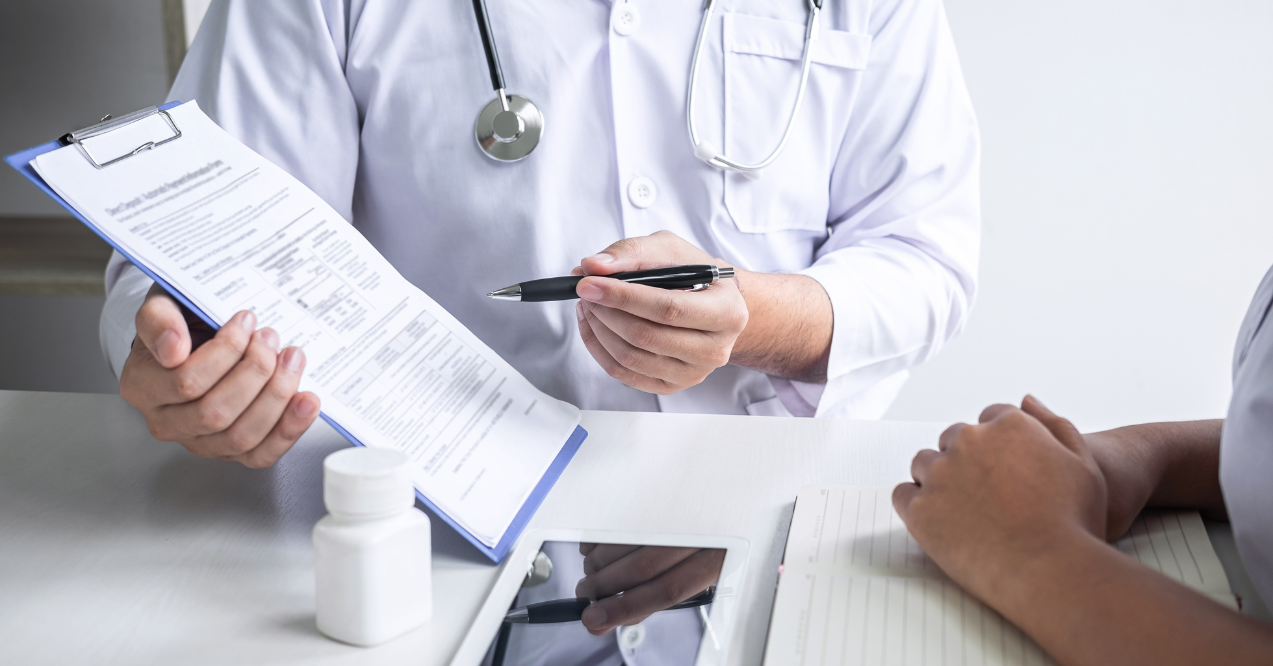10 Signs Your Liver Needs Detoxing
Medically reviewed by our experts


Your liver is the unsung hero of your body’s natural detoxification system, working tirelessly to filter toxins from your bloodstream and convert them into waste products for elimination. In today’s world of processed foods, environmental pollutants, and busy lifestyles, this vital organ often becomes overwhelmed and less efficient.
Recognizing the 10 signs your liver needs detoxing can be crucial for maintaining overall wellness and vitality. When your body starts sending these subtle (or sometimes not-so-subtle) signals, it’s time to pay attention and take proactive steps to support this essential organ’s health and function.
Understanding the Liver’s Role in Detoxification
Your liver is truly remarkable – weighing about three pounds, it’s the largest internal organ and performs over 500 vital functions. At the core of these responsibilities is detoxification, your body’s natural cleaning process.
Here’s how your liver supports whole-body health:
- Filters blood – Processing nearly 1.5 liters every minute, your liver removes harmful substances before they can circulate throughout your body
- Breaks down toxins – Converting potentially harmful compounds into water-soluble substances that can be eliminated through urine or bile
- Processes nutrients – Transforming the food you eat into substances your body can use for energy and cellular repair
- Manages fat metabolism – Breaking down fats and producing bile that helps digest fatty foods
- Stores essential vitamins – Acting as a reservoir for vitamins A, D, E, K, and B12
Your liver accomplishes these tasks through a two-phase detoxification process. In Phase I, enzymes transform toxins into less harmful substances, while in Phase II, these substances are bound to molecules that make them water-soluble for elimination.
When your liver becomes overwhelmed by excessive toxin exposure, poor nutrition, or lifestyle factors, it may be less efficient in carrying out its functions. This can lead to a buildup of harmful substances and manifest as various physical symptoms that signal your liver needs additional support.
The 10 Signs Your Liver Needs Detoxing

Your liver is the unsung hero of your body’s natural detoxification system. This remarkable organ filters toxins, processes nutrients, and supports over 500 vital functions – but it can become overwhelmed by today’s toxic burden. Recognizing the 10 signs your liver needs detoxing allows you to take action before minor issues become major concerns.
For those considering a 7 day liver cleanse diet, understanding these warning signals helps create a foundation for effective liver support and improved overall wellness. When your body starts communicating these distress signals, it’s time to listen and respond with targeted nutrition and lifestyle changes.
It’s also worth noting that emotional health matters too. Many people ask, “Can stress cause elevated liver enzymes?” The answer is yes — ongoing stress can influence liver function, which may amplify some of these warning signs.
Sign 1: Persistent Fatigue
That constant tiredness that doesn’t improve with sleep might be your liver sending an SOS. When your liver can’t efficiently remove toxins, these substances can accumulate and affect your energy production.
What to look for:
- Feeling exhausted despite getting adequate rest
- Morning fatigue that persists throughout the day
- Low energy that doesn’t improve with typical remedies
Supporting liver health through lifestyle changes can contribute to improved energy levels for some individuals, though results may vary.
Sign 2: Digestive Issues
Your liver produces bile that helps break down fats and supports proper digestion. When liver function declines, digestive problems often follow.
Common symptoms include:
- Frequent bloating after meals
- Indigestion or uncomfortable fullness
- Gas and occasional nausea
- Intolerance to fatty foods
When liver function is affected, some people experience digestive disruptions, as bile production and processing may be less efficient.
Sign 3: Yellowing of the Skin or Eyes (Jaundice)
Changes in skin or eye color is one of the more noticeable indicators of liver stress. This yellowish tint develops when your liver can’t properly process bilirubin, a yellow pigment produced during the normal breakdown of red blood cells.
Look for:
- Yellow tint to the whites of your eyes (often the first sign)
- Yellowish skin tone, particularly noticeable in natural light
- Darker urine color
If you notice these changes, it’s important to support your liver function promptly as jaundice indicates your liver is under significant stress.
Sign 4: Unexplained Weight Gain
If you’re experiencing unexplained weight gain despite maintaining a healthy lifestyle, factors affecting liver function may be one of several contributing factors.
How it happens:
- Compromised liver function affects fat metabolism
- Toxin buildup can disrupt hormonal balance
- Water retention may increase due to altered protein production
Supporting liver health through balanced nutrition and lifestyle can help optimize its functions, which may contribute to overall metabolic wellness and support healthy body weight.
Sign 5: Dark Urine or Pale Stool
Your bathroom habits can reveal important clues about liver health. The color of your urine and stool directly reflects how well your liver is processing waste products.
Watch for:
- Consistently dark yellow or amber urine (not related to dehydration)
- Clay-colored or very pale stools
- Floating stools that may indicate fat malabsorption
These changes occur because bile production and flow may be compromised, affecting waste elimination through both urine and stool – common liver detox symptoms during the healing process.
Sign 6: Frequent Headaches or Brain Fog
That fuzzy thinking or recurring headaches might be connected to your liver’s detoxification abilities. When toxins aren’t properly filtered, they can affect brain function.
Typical experiences include:
- Difficulty concentrating or focusing
- Memory lapses or forgetfulness
- Persistent mild headaches
- Mental fatigue or confusion
This “brain fog” occurs because the liver isn’t effectively removing substances that can impair cognitive function, allowing them to circulate and affect your brain.
Sign 7: Skin Problems
Your skin often reflects internal health, particularly liver function. When your liver can’t eliminate toxins efficiently, your body may try to expel them through your skin.
Common issues:
- Unexpected lymphatic acne or rashes
- Itchy, dry patches
- Increased sensitivity to products
- Dull complexion or dark circles
These skin issues develop because your overloaded liver forces toxins to find alternative exit routes – often through your largest organ, the skin.
Sign 8: Abdominal Pain or Swelling
Discomfort or swelling in your upper right abdomen shouldn’t be ignored, as this is where your liver is located. When your liver becomes enlarged or inflamed, you may notice physical symptoms.
Pay attention to:
- Tenderness below your right ribcage
- A feeling of fullness or pressure in your abdomen
- Visible swelling in your midsection
- Discomfort that worsens after eating
These physical symptoms occur when your liver becomes inflamed or enlarged due to accumulated toxins or impaired function.
Sign 9: Unusual Sensitivity to Alcohol or Medications
Finding yourself more affected by a single drink or medication than before? This increased sensitivity often indicates your liver is struggling with its detoxification responsibilities.
Signs include:
- Feeling intoxicated after minimal alcohol
- More pronounced medication side effects
- Longer recovery time after consuming alcohol
- Increased hangover symptoms
These reactions happen because your liver can’t efficiently process these substances, allowing them to circulate longer and produce stronger effects.
Sign 10: Hormonal Imbalances
Your liver plays a crucial role in hormone regulation, including breaking down excess hormones. Signs of sluggish liver often include unexpected hormonal shifts.
Watch for:
- Irregular menstrual cycles
- Mood swings or irritability
- Unexplained changes in energy levels
- Worsening PMS symptoms
These hormonal disruptions occur because your liver helps metabolize and eliminate excess hormones – when it can’t keep up, hormone levels can fluctuate unpredictably.
How to Support Liver Health?

After recognizing signs that your liver needs attention, it’s time to take action. The good news is that the liver has remarkable regenerative abilities when given proper support. Implementing these practical strategies can help revitalize liver function and improve your overall wellbeing.
Supporting your liver doesn’t require extreme measures – consistent, moderate approaches typically yield the best results. The key is to reduce the burden on your liver while providing the nutrients it needs to repair and function optimally. Within weeks of making these changes, many people report significant improvements in energy, digestion, and other symptoms.
Here are four essential strategies to support your liver’s natural detoxification processes:
Abstinence from Alcohol
Giving your liver a break from alcohol is one of the most effective ways to support its recovery. Alcohol processing is demanding on liver cells, and even moderate consumption can interfere with healing.
When you stop consuming alcohol, your liver can redirect its energy from processing toxins to repairing itself. Within days, you may notice initial signs your liver is healing from alcohol, including:
- Improved morning energy
- Clearer thinking
- Better quality sleep
- Reduced facial puffiness
- Less digestive discomfort
Adopt a Liver-Friendly Diet
What you eat directly impacts your liver health. A liver-supportive diet reduces harmful substances that require processing while providing nutrients that support detoxification.
Focus on incorporating these liver-friendly foods:
- Cruciferous vegetables (broccoli, cauliflower, Brussels sprouts)
- Leafy greens (spinach, kale, arugula)
- Sulfur-rich foods (garlic, onions)
- Antioxidant-rich berries (blueberries, strawberries)
- High-quality protein (beans, lentils, lean poultry)
- Healthy fats (olive oil, avocados, nuts)
While dietary changes form the foundation of liver support, many people find that targeted liver detox supplements could enhance their efforts. Liver 360 offers comprehensive support for those looking to optimize their liver function alongside healthy eating habits. Endorsed by Dr. Holly Lucille ND, RN, this full-spectrum formula supports liver function with potent botanical ingredients that have been used for centuries to support liver health.

With key ingredients like Milk Thistle, known for its powerful antioxidant properties, and Artichoke, which supports bile production and flow, Liver 360 complements your dietary efforts by providing concentrated support for your liver’s 500+ essential functions. Consider it as an additional tool in your liver health toolkit, especially during periods of increased toxin exposure or when your diet hasn’t been optimal.
Regular Exercise
Physical activity supports liver health through multiple mechanisms. Regular movement improves circulation, reduces fat accumulation in the liver, and helps maintain healthy body weight – all factors that reduce liver stress.
Beneficial exercises include:
- Brisk walking (30 minutes daily)
- Swimming
- Cycling
- Yoga or tai chi
- Strength training (2-3 times weekly)
Exercise doesn’t need to be intense to be effective. Consistency matters more than intensity – aim for 150 minutes of moderate activity weekly. The improved circulation helps deliver nutrients to your liver while removing toxins more efficiently, creating a virtuous cycle of improvement.
Proper Hydration
Water is essential for every detoxification process in your body, including those performed by your liver. Adequate hydration helps flush toxins through your kidneys, reducing the burden on your liver.
For optimal hydration:
- Aim for approximately half your body weight (in pounds) in ounces of water daily
- Start each morning with a large glass of water
- Consider adding lemon for its liver-supportive properties
- Try herbal options like dandelion tea — learning how to make dandelion tea can give you a simple way to stay hydrated while supporting liver function
- Reduce caffeine and sugary beverages, which can dehydrate
- Monitor your urine color – pale yellow indicates good hydration
Additionally, we suggest exploring nutrient-dense beverages like the 7 Best Recipes for Detox Smoothies, which combine fruits, greens, and superfoods to promote hydration and gentle cleansing.
Conclusion
Your liver works tirelessly as your body’s primary detoxification center, but it needs your support to function optimally in our toxin-filled world. Recognizing the 10 signs your liver needs detoxing – from persistent fatigue and digestive issues to skin problems and hormonal imbalances – allows you to take action before minor issues escalate. The good news is that with proper care, your liver has an amazing ability to heal and regenerate.
Implementing strategies like reducing alcohol consumption, eating a liver-friendly diet, staying active, and staying hydrated can support liver health and contribute to overall wellness. Listen to your body’s signals and respond with compassionate action. Your liver supports you every moment of every day; returning the favor through mindful choices creates a foundation for lasting energy, clarity, and health.
Common signs include persistent fatigue, digestive issues, brain fog, skin problems, dark urine, yellowing skin or eyes, unexplained weight gain, abdominal discomfort, increased sensitivity to alcohol, and hormonal imbalances that may indicate your liver is struggling with toxin overload.
Support liver health by reducing alcohol, eating liver-friendly foods like cruciferous vegetables and berries, staying hydrated, exercising regularly, maintaining healthy weight, getting adequate sleep, reducing processed foods and sugar, and considering supportive herbs like milk thistle and artichoke.
The liver can begin showing improvement within days of supportive measures, but complete regeneration typically takes 4-8 weeks with consistent healthy habits. Individual results vary based on previous liver condition, diet quality, and lifestyle factors.
FAQ
References


